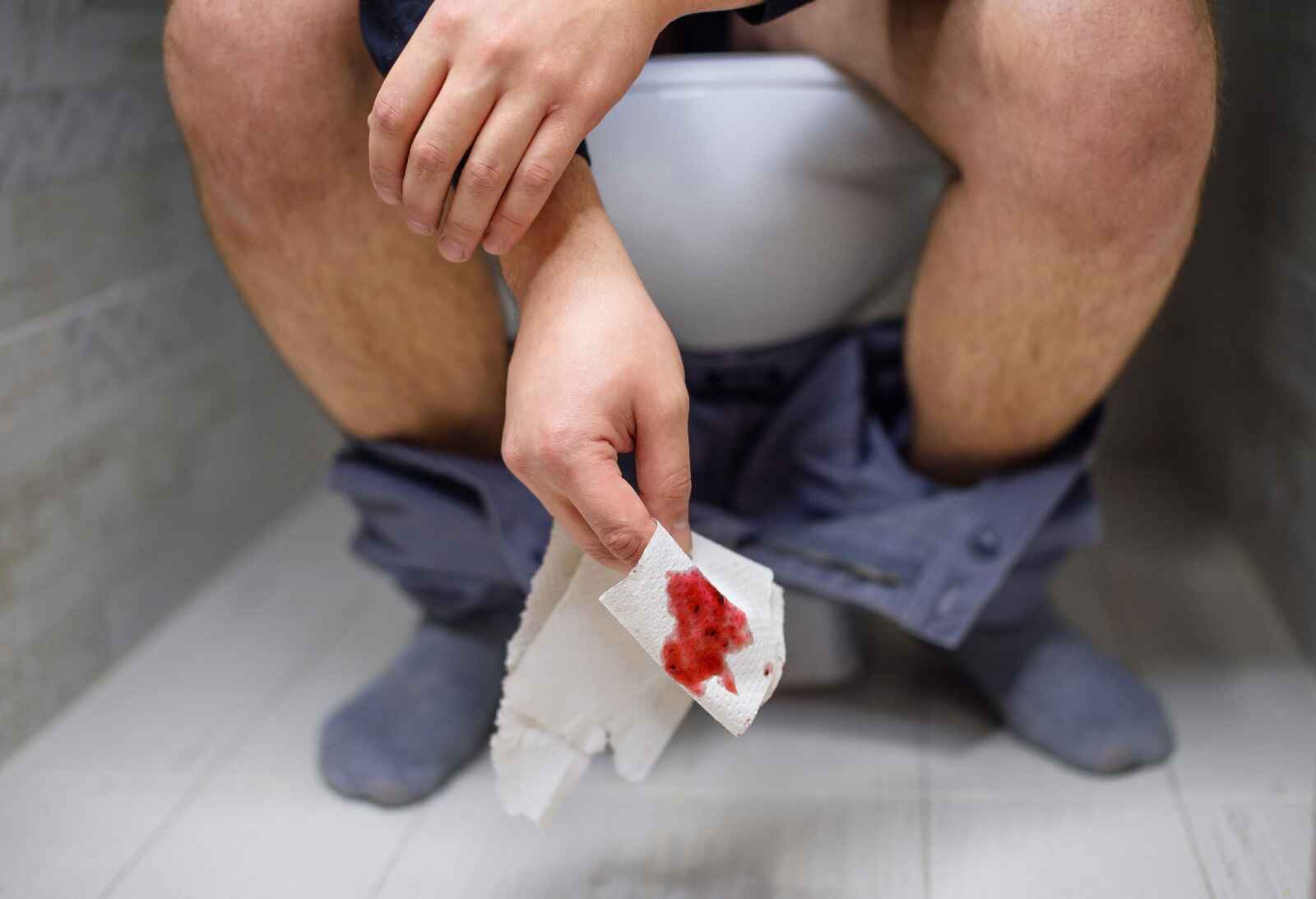Blood in Stool
Causes, Symptoms, & When to contact a Doctor

Rectal bleeding, also known as blood in stool, is a common concern that can be alarming, manifesting in various ways. Usually the cause is benign and self-limiting, but it's crucial to be attentive if blood in stool persists or if it occurs in children. If noticed, immediate medical attention is necessary.
- Blood on Toilet Paper: You may notice blood on the toilet paper after wiping.
- Blood in/on Poop: Blood can be present on the surface of the stool or mixed within it.
- Blood and Mucus: In some cases, both blood and mucus may be present during bowel movements.
- Spontaneous Bleeding: Blood may come out of the anus, sometimes in clots, even without having a bowel movement.

Experiencing bleeding during bowel movements can be concerning, but understanding the common reasons behind it is key to finding the right solutions. Now, let's explore what cause blood in the stool.
One common cause is issues like hemorrhoids and anal cracks, which can make bowel movements a bit more challenging and lead to bleeding. Inflammatory conditions like ulcerative colitis, Crohn's disease, and severe stomach inflammation are also potential culprits. Some medications, such as blood thinners and painkillers, may increase the risk of bleeding, and structural problems like diverticula, polyps, and intestinal cancers can contribute as well.
If you're undergoing radiation treatment for prostate cancer, it's important to know that this can cause inflammation in the rectum, potentially leading to bleeding during bowel movements.
Understanding that various factors could be at play and identifying the specific cause of the bleeding is crucial for getting the right treatment.
- Hemorrhoids and Anal Cracks: Common culprits leading to bleeding during bowel movements, along with symptoms like itching, burning sensation, or pain around the anus
- Inflammatory Conditions: Diseases like ulcerative colitis, diverticulitis, Crohn's disease, and severe stomach inflammation.
- Certain medications Certain drugs, including blood thinners and painkillers.
- Structural Issues: Mostly among older age groups, diverticula, polyps, and cancers in the intestine can cause bleeding.
- Infections:Diseases transmitted through unsafe anal sex.
- Blood vessel changes: Easily bleeding blood vessels, common in older individuals.
- Radiation therapy:Radiation for prostate cancer, causing inflammation in the rectum.

Recognizing potentially dangerous symptoms is crucial when you have blood in the stool.
Contact your doctor if you are over 50 years, especially if accompanied by changes in bowel habits or if blood is mixed in the stool, and if you have a family history of colon cancer under the age of 70. You should also contact your doctor if the blood in the stool does not dissapear or if you experience unexplained weightloss, loss of appetite, fever or abdominal pain.
Remember, regular check-ups and open communication with your healthcare provider are essential for addressing concerns related to rectal bleeding and ensuring timely intervention.
- Severe rectal bleeding: If you lose a significant amount of blood rapidly.
- Dizziness and other symptoms:: If bleeding is accompanied by dizziness, drowsiness, clamminess, or sweating.
- Use of (strong) blood thinners: If you're on blood thinners and experiencing bleeding.